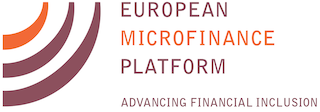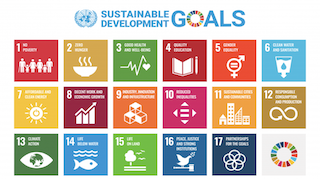 The Grameen Credit Agricole Foundation recently carried out a pilot project in Uganda engaging financial services providers (FSPs) in serving refugees and their host communities. The goal is to support FSPs in adapting their products to the needs of forcibly displaced persons (FDPs) – “adapting” because new products are not generally needed – and rolling them out to prove the business case for serving these populations. Despite early reluctance from FSPs, their portfolio-at-risk ratios turned out to be under 5 percent – sometimes better than their overall portfolios. As a result, two of the foundation’s FSP partners have
The Grameen Credit Agricole Foundation recently carried out a pilot project in Uganda engaging financial services providers (FSPs) in serving refugees and their host communities. The goal is to support FSPs in adapting their products to the needs of forcibly displaced persons (FDPs) – “adapting” because new products are not generally needed – and rolling them out to prove the business case for serving these populations. Despite early reluctance from FSPs, their portfolio-at-risk ratios turned out to be under 5 percent – sometimes better than their overall portfolios. As a result, two of the foundation’s FSP partners have
Tag: Uganda
MICROCAPITAL BRIEF: Liberation Community Finance Expanding Branch Network, Product Lineup for Farmers, Women, Youth in Uganda
 Liberation Community Finance (LCF), a microfinance institution (MFI) in Uganda, has several new initiatives:
Liberation Community Finance (LCF), a microfinance institution (MFI) in Uganda, has several new initiatives:
– a partnership with Uganda’s Agricultural Business Initiative (aBi) to develop environmentally sensitive financial products for LCF’s clients who farm crops such as maize and pumpkins;
– a Women Commander model through which women who borrow in groups can earn commissions for monitoring loan repayments and recruiting additional borrowers; and
– a partnership with Uganda’s
MICROCAPITAL BRIEF: Stanbic Bank Uganda, IFAD Seek to Reduce Costs of Remittances via FlexiPay E-wallet, Encourage Adoption via SACCOs
 Kampala-based Stanbic Bank Uganda and the UN International Fund for Agricultural Development (IFAD) have announced a partnership with the goal of reducing the cost of remittances to Uganda from other countries. In particular, the aim is to
Kampala-based Stanbic Bank Uganda and the UN International Fund for Agricultural Development (IFAD) have announced a partnership with the goal of reducing the cost of remittances to Uganda from other countries. In particular, the aim is to
SPECIAL REPORT: The Impact of Digital Financial Inclusion on Global Development
In September 2015, every UN member country endorsed the 2030 Agenda for Sustainable Development, which comprises 17 target areas known as the Sustainable Development Goals (SDGs).
 After falling from 10.1 percent in 2015 to 8.6 percent in 2018, the global poverty rate increased to 9.2 percent in 2020 because of the COVID-19 pandemic, reversing a long trend of poverty reduction. Other headwinds such as armed conflicts, rising inflation, food insecurity, and political and social unrest also are affecting global development, and the UN estimates that these crises combined to cause an additional 95 million people to live in extreme poverty in 2022.
After falling from 10.1 percent in 2015 to 8.6 percent in 2018, the global poverty rate increased to 9.2 percent in 2020 because of the COVID-19 pandemic, reversing a long trend of poverty reduction. Other headwinds such as armed conflicts, rising inflation, food insecurity, and political and social unrest also are affecting global development, and the UN estimates that these crises combined to cause an additional 95 million people to live in extreme poverty in 2022.
On the other hand, the digital revolution has made many people’s lives easier with access to mobile phones, the internet and other tools. Digital financial inclusion (DFI) and its innovative business models have had a particularly disruptive effect, bolstering financial inclusion worldwide.
Impact on Sustainable Development Goals
DFI is enabling all types of pathways to advance the achievement of the SDGs, strengthening the link between financial inclusion and development. In 2016, CGAP and
MICROCAPITAL BRIEF: Patasente Agricultural Trading Platform Accesses Credit Line Via Verdant Capital for Onlending, Invoice Discounting in Uganda
 Mauritius-based Verdant Capital, a corporate finance firm, recently facilitated a revolving credit account for Patasente, a Ugandan firm operating a digital trading platform for actors in agricultural value chains. The new facility will fund
Mauritius-based Verdant Capital, a corporate finance firm, recently facilitated a revolving credit account for Patasente, a Ugandan firm operating a digital trading platform for actors in agricultural value chains. The new facility will fund
MICROFINANCE EVENT: Unlocking Solar Capital (USC) Africa; May 31 – June 1, 2023; Kampala, Uganda
 The fifth iteration of this event will promote partnerships between investors and project developers to work toward universal energy access. The event will include sessions such as: (1) Integrated Energy Planning & Smart Subsidies to Achieve
The fifth iteration of this event will promote partnerships between investors and project developers to work toward universal energy access. The event will include sessions such as: (1) Integrated Energy Planning & Smart Subsidies to Achieve
MICROCAPITAL BRIEF: Oxfam, Goodwell Launch Pepea, $23m Fund to Invest in SMEs in East Africa
 Two Netherlands-based organizations, the NGO Oxfam Novib and for-profit Goodwell Investments recently partnered to create Pepea Fund, with EUR 20 million (USD 22.8 million) from Oxfam Novib to support small and medium-sized enterprises (SMEs) in Kenya, Ethiopia and Uganda. Goodwell Investments will
Two Netherlands-based organizations, the NGO Oxfam Novib and for-profit Goodwell Investments recently partnered to create Pepea Fund, with EUR 20 million (USD 22.8 million) from Oxfam Novib to support small and medium-sized enterprises (SMEs) in Kenya, Ethiopia and Uganda. Goodwell Investments will
MICROCAPITAL BRIEF: Bidhaa Sasa Borrows $500k from Spark+ Africa Fund for Distribution of Efficient Cookstoves in Kenya, Uganda
 Bidhaa Sasa, a Kenya-based last-mile distributor of lower-emission cooking and lighting products, recently borrowed USD 500,000 from Spark+ Africa Fund, an investor in “modern energy solutions.” Bidhaa Sasa plans to use the proceeds to
Bidhaa Sasa, a Kenya-based last-mile distributor of lower-emission cooking and lighting products, recently borrowed USD 500,000 from Spark+ Africa Fund, an investor in “modern energy solutions.” Bidhaa Sasa plans to use the proceeds to
MICROFINANCE PAPER WRAP-UP: “Digital Finance Campaign Replication Guide,” Published by USAID
 This paper describes a digital finance education campaign called “Hey Sister! Show Me the Mobile Money,” including efforts to make it easy to replicate from one geographical context to another. The program facilitates low-income women’s access to digital financial services (DFS) by addressing the challenges of
This paper describes a digital finance education campaign called “Hey Sister! Show Me the Mobile Money,” including efforts to make it easy to replicate from one geographical context to another. The program facilitates low-income women’s access to digital financial services (DFS) by addressing the challenges of
MICROFINANCE PAPER WRAP-UP: “Remote Coaching to Prevent Dormancy Among Low-income Savers,” by Scott Graham et al, Published by WSBI
 This report addresses the phenomenon of “dormancy” in the savings accounts of new owners of financial accounts, whereby the newly established accounts go unused after initial deposits are complete. The authors describe the use of coaching – via phone calls and SMS messages – to increase
This report addresses the phenomenon of “dormancy” in the savings accounts of new owners of financial accounts, whereby the newly established accounts go unused after initial deposits are complete. The authors describe the use of coaching – via phone calls and SMS messages – to increase
MICROFINANCE PAPER WRAP-UP: “Savings and Retail Banking in Africa: Unpacking the Customer Through Demand Side Data,” published by World Retail Savings and Banking Institute, MasterCard Foundation
 This report offers three case studies on how financial services providers (FSPs) may expand and improve their usage of data to devise client-centric services and minimise account dormancy. The first case study is on the
This report offers three case studies on how financial services providers (FSPs) may expand and improve their usage of data to devise client-centric services and minimise account dormancy. The first case study is on the
MICROFINANCE PAPER WRAP-UP: “Informed Design: A Case Study Series – Insights from WomenSave,” by Catherine Highet, Published by FinEquity
 As part of a series on the role of product design in increasing women’s use of financial services in Africa and Asia, this case study reviews a pilot savings project implemented by WomenSave, a Ugandan provider of financial training and services to women with low incomes. The goal of the project, which focused on the districts of Kanungu and Rukungiri, was to
As part of a series on the role of product design in increasing women’s use of financial services in Africa and Asia, this case study reviews a pilot savings project implemented by WomenSave, a Ugandan provider of financial training and services to women with low incomes. The goal of the project, which focused on the districts of Kanungu and Rukungiri, was to
MICROCAPITAL BRIEF: Grameen Crédit Agricole Foundation Lends Local-currency Equivalent of $445k to Microfinance Institution VisionFund Uganda
 VisionFund Uganda has borrowed EUR 400,000 (USD 445,000) from the Grameen Crédit Agricole (GCA) Foundation, an NGO headquartered in Luxembourg that seeks to reduce poverty by providing funding and technical assistance to microfinance institutions and other social businesses. Established in 2012, VisionFund Uganda is a microlending unit of VisionFund International, which, in turn, is owned by
VisionFund Uganda has borrowed EUR 400,000 (USD 445,000) from the Grameen Crédit Agricole (GCA) Foundation, an NGO headquartered in Luxembourg that seeks to reduce poverty by providing funding and technical assistance to microfinance institutions and other social businesses. Established in 2012, VisionFund Uganda is a microlending unit of VisionFund International, which, in turn, is owned by
MICROCAPITAL BRIEF: Moneylenders Arrested for Extortion, Impersonating Uganda Microfinance Regulatory Authority Staff
 Police in the Buikwe district of Uganda recently arrested six employees of Moskal Enterprises Uganda Limited, a moneylending firm based in the Luwero district, for impersonating staff of the
Police in the Buikwe district of Uganda recently arrested six employees of Moskal Enterprises Uganda Limited, a moneylending firm based in the Luwero district, for impersonating staff of the
MICROCAPITAL BRIEF: Chipper Cash Raises $100m in Equity to Expand Cryptocurrency, Peer-to-Peer Services, Distribution of Payment Cards in Africa, UK
Chipper Cash, a US-based financial technology (fintech) firm active in Africa, recently raised USD 100 million in a Series C round of funding that it plans to use to
MICROCAPITAL BRIEF: IDH Farmfit Fund Acquires Equity Stake in LendXS, Provider of Fintech for Microfinance Institutions Serving Smallholder Farmers
The IDH Farmfit Fund, which is facilitated by the Sustainable Trade Initiative, a Netherlands-based NGO known by its Dutch acronym IDH, recently acquired a 21-percent stake in LendXS, a Netherlands-based financial technology (fintech) platform for rural financial institutions. The pricing of the transaction remains
MICROCAPITAL BRIEF: Ascent Rift Valley Fund II Raises $100m from Public, Private Investors for SMEs in East Africa
Kenya-based private equity firm Ascent Capital Africa recently secured USD 100 million at the first rolling close of its Ascent Rift Valley Fund II (ARVF II), surpassing the firm’s initial goal of USD 80 million. The funds will be invested in small and medium-sized enterprises (SMEs) in East Africa, targeting
MICROCAPITAL BRIEF: Tugende Expands Leasing Products to Finance Boat Engines for Fishing in Uganda
Tugende, a technology-driven, lease-to-own firm, recently expanded its product portfolio to finance boat engines for informal workers in the fishing industry in Uganda. The company provides “financing for income-generating assets,” such as motorcycle taxis; associated resources, such as insurance and training; and digital profiles demonstrating
